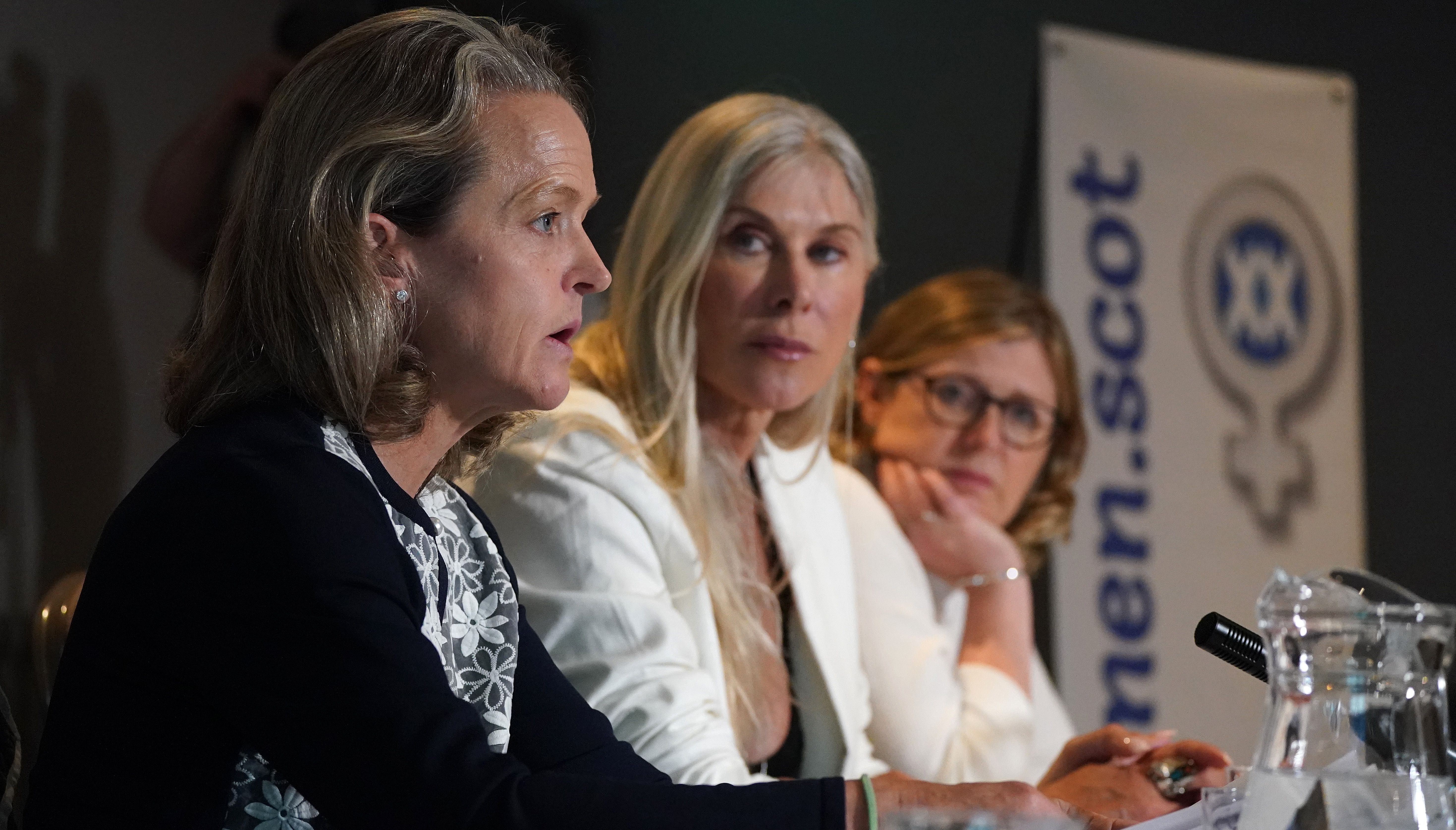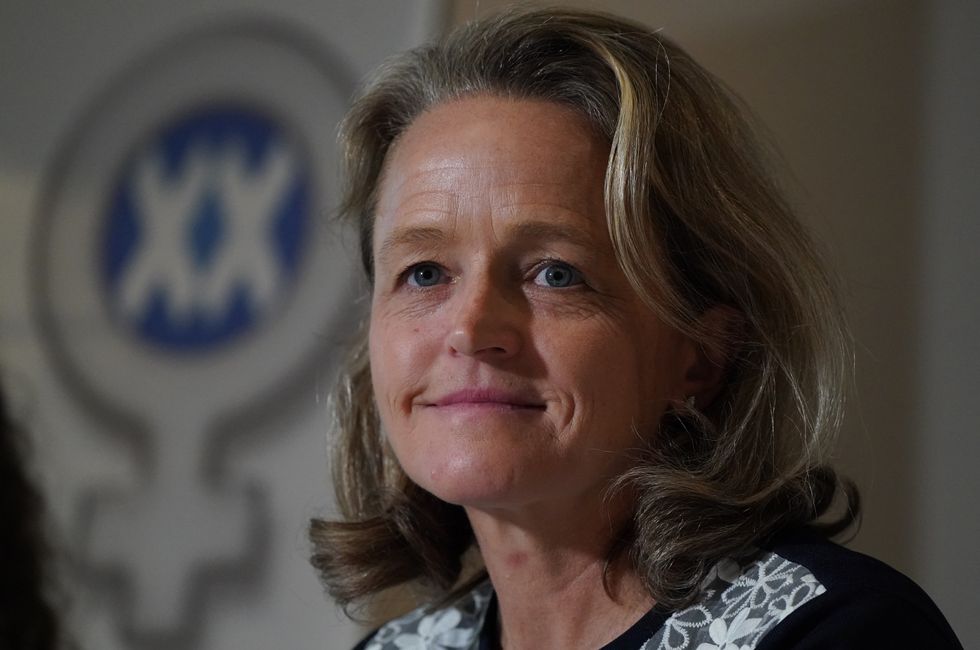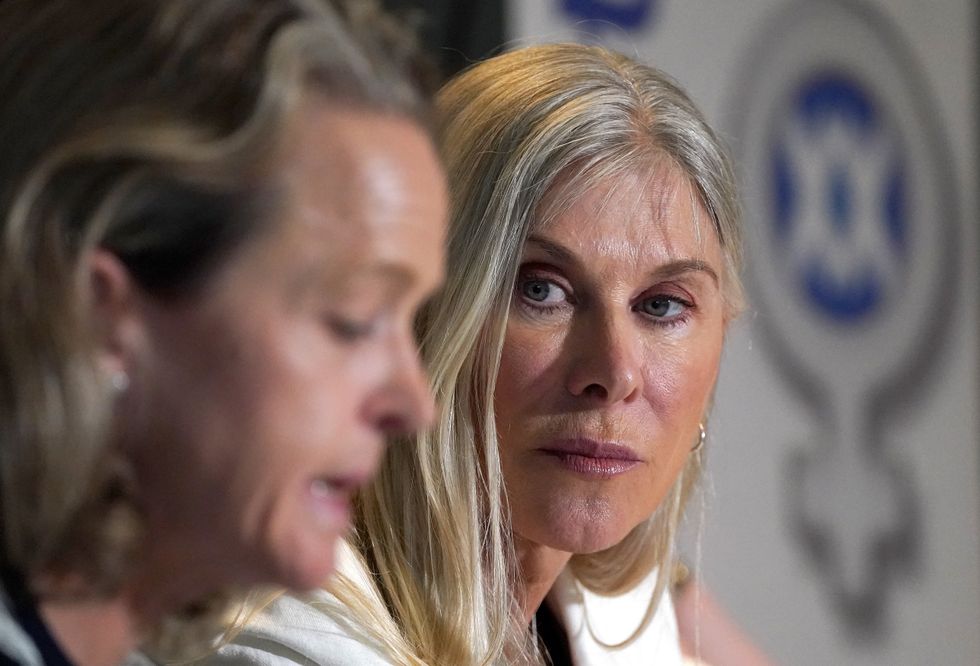Don't Miss
Most Read
Trending on GB News
Two former Olympians have shared concerns over the integrity of female sporting categories amid proposals to reform Scotland’s gender recognition process.
Sharron Davies, a former competitive swimmer, and Mara Yamauchi, a former marathon runner, visited Edinburgh on Thursday to attend a For Women Scotland conference.
The two women voiced disappointment at not being invited as female athletes to give evidence at Holyrood’s Equalities, Human Rights and Civil Justice committee, which is currently scrutinising the legislation.
Ms Davies said she “absolutely” would appear in front of the committee if she was asked to, while Ms Yamauchi revealed that she had written to the committee following the evidence session on sport.
Sharron Davies, a former competitive swimmer, and Mara Yamauchi, a former marathon runner, visited Edinburgh on Thursday to attend a For Women Scotland conference.
Andrew Milligan
Ms Yamauchi said: “I’ve just received a reply saying they’re not going to be holding any further sessions on sport.
“They need to listen to female athletes, and they need to listen to people who care about women’s sport.”
The committee took evidence last month on the proposal’s impact on sport, hearing from sportscotland and Leap Sport Scotland.
A letter sent to Ms Davies from Joe FitzPatrick, the committee’s convener, said the Bill “has a number of aspects on which the committee must focus its scrutiny”.
“You will appreciate that sport is just one of those aspects,” he wrote, adding that the broader issue of trans inclusion in sport “goes far beyond the committee’s scrutiny of the specific provisions” of the Bill.
“Following consideration of this issue at the committee’s meeting last week, it made a collective decision not to hold a further evidence session with elite female athletes,” he said.
Mara Yamauchi said she felt sport was inclusive “until gender identity ideology arrived”.
Andrew Milligan
Ms Davies told the conference of her experience while competing in the Olympics, where she faced competitors from East Germany.
“For me, this is a passion that comes from competing for a decade against East Germans,” she said. “Young East German girls were put through male puberty, which is a horrendous thing.”
She added: “At the Olympics, I won my silver medal being one of only two people outside the Eastern Bloc that won medals. They took 90 percent of the women’s medals, and only five percent of the men’s.”
Ms Davies added: “If we enable males to be in female sports, you are excluding females from their own category of sport.
“Sport is exclusionary by nature. The whole reason you have under-10s is so that the under-10s can race and the 12-year-olds don’t go in there and win.”
Ms Yamauchi said she felt sport was inclusive “until gender identity ideology arrived”, adding: “If categories didn’t exist, the only people who would get a look-in would be adult, able-bodied males, since they are the group who have the greatest physical abilities.”
She said: “We can all see with our own eyes what gender ideology has done to women’s sport, and I hope that political leaders will put a stop to it now, because a lot of damage has already been done.”
Ms Yamauchi revealed that while she was competing, she chose to self-exclude herself due to “unfair competition” after she suspected her rivals were doping.
“The same will apply to females facing males in their own category,” she said.
The controversial Gender Recognition Reform (Scotland) Bill would reduce the length of time required for a trans person to live in their acquired gender from the current two years to three months, with a subsequent three-month reflection period.
Sharron Davies said: “If we enable males to be in female sports, you are excluding females from their own category of sport.
Andrew Milligan
The legislation would additionally remove the need for a diagnosis of gender dysphoria ahead of an application for a gender recognition certificate, and would drop the minimum age for an application to be made from 18 to 16.
A Scottish Government spokesperson said: “Sports governing bodies set their own rules for participation of trans people, under the Equality Act 2010 and also provide for exceptions to be made in relation to sports and games where physical strength, stamina, or physique of average persons of one sex would put them at a disadvantage.
“The Gender Recognition Bill does not change the Equality Act in any way.
“The Bill also makes no changes to rules for women’s sport whether professional, amateur or in schools.”














